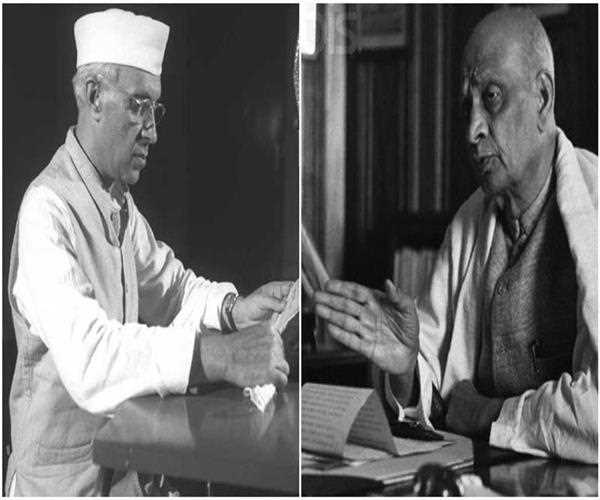
13-Jul-2022 , Updated on 7/13/2022 8:12:11 AM
Why was Sardar Vallabh Bhai Patel not made the Indian Prime Minister?
When India was declared independent in 1947, Sardar Vallabhbhai Patel was chosen by the Congress party for the position of Prime Minister. However, Gandhiji asked Patel to take back his candidature, which Patel did, and after this Gandhiji chose Jawaharlal Nehru to the position for the Position of Prime Minister. This decision confused a lot of people and arose several questions within their minds. The possible reasons why Gandhiji preferred Jawaharlal Nehru over Sardar Vallabhbhai Patel will be discussed in this article.
In my view, Gandhiji thought that when compared to Sardar Vallabhbhai Patel, Nehru was much younger so he could handle the country for a long period. Later on, we saw that Sardar Patel died of Tuberculosis in December 1950.
Jawaharlal Nehru was much popular among people at that time and had recognition among many world capitals across the globe. He was even famous for his major books such as Discovery of India, Glimpses of World History, and his Autobiography while was in prison. He was also famous for his editorials in a newspaper named National Herald established by him. He had a deep understanding of Indian culture, polity, and diversity.
He had a great vision which he used to share in his newspaper and his speeches. After becoming the first Prime Minister of India after Independence he went on to develop the constitution along with Bhim Rao Ambedkar, evolved many Institutions, and deeply focused on the issue of eradicating problems like poverty, and illiteracy to develop the country. He played a major role in the abolition of the Zamindari system and was able to successfully provide the Kisans with their rights. He also started the Hindu code bill to reform Hindu society.
He developed academic institutes like IITs, and IIMs, and research institutes like DRDO. He contributed to the establishment of the Bhilai steel plant, Durgapur Steel Plant, Rourkela steel plant, and many other such industries. He also initiated the projects of Bhakra Nangal Dam, Damodar Valley Project, Narmada valley project, and many others.
He even contributed to the cultural aspects. He developed the Sahitya Academy, National Institute of Design, Film Institute of India, National Institute of Drama, and so on.
He and his team were the ones who lead the foundation of modern India. At the time of independence, the condition of India was very bad. More than 80 percent of the population were struggling to have two meals in a day. There were no work opportunities available and very less amount of people were 15 percent of people were able to write, and less than 20 percent were able to read. From that stage, he developed India by building schools and colleges for education, developing Industries to provide employment opportunities, and also boost the economy of the country.
Nehru understood that English was a bridge between India and the outside world so despite objections he introduced the English language in schools, colleges, and other sectors. The world was divided into US and Soviet Blocs and their followers globally. Nehru guided our country through an independent course via the Non-Aligned Movement. He and Ambedkar brought a huge number of people to mainstream society who were previously labeled as “lower caste” and did not have equal rights. He also created reservations for them in government education as well as jobs.
So, it can be undoubtedly said that Jawaharlal Nehru was one of the finest prime ministers of India. The development he created helped at the beginning of the era of Modern India. He can be rightly called the mastermind architect of Modern India. He created division among states on a linguistic basis which gave the people the power to express themselves in their mother tongue and created equal opportunities and importance for all languages. Nehru had several failings as well but the amount of work he did for his country, and his contributions in every field overshadows his failings completely. He was indeed an iconic personality who took newly independent India and transformed it into a strong democratic nation labeled Modern India.

Student
I am currently pursuing BTech in Information Technology from a renowned government engineering college in India. My hobbies include writing, reading, and clicking photographs.
Join Our Newsletter
Subscribe to our newsletter to receive emails about new views posts, releases and updates.
Copyright 2010 - 2026 MindStick Software Pvt. Ltd. All Rights Reserved Privacy Policy | Terms & Conditions | Cookie Policy